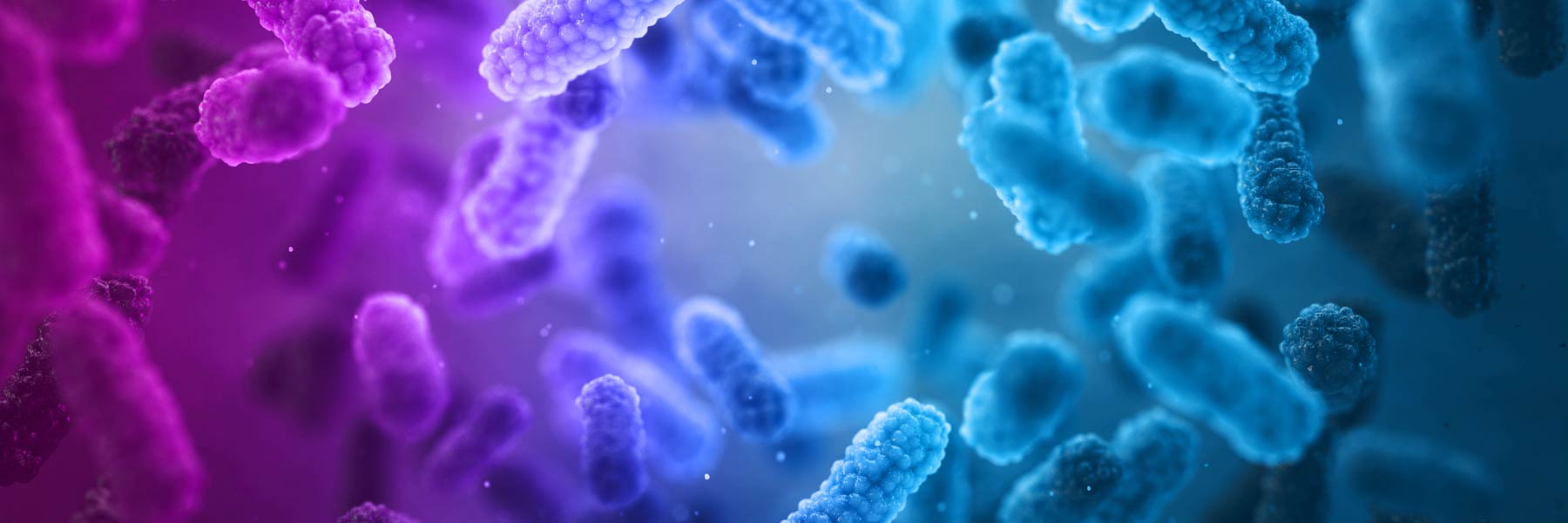2019-05-24
Over the past few years, the microbiome has opened the doors to new research. The gut microbiome specifically has been linked to a number of diseases via changes in the microbial composition. New research suggests that imbalances in the gut microbial composition alter the function of the gut-brain axis, which are associated with neuropsychiatric illnesses. The bidirectional gut-brain axis is connected by the vagus nerve and is thought to involve neuronal, hormonal, and immunological pathways. 90% of all serotonin (the ’happy chemical’) is produced in the gastrointestinal tract and affects the vagus nerve activity.[1]
Bipolar disorder is one condition that has recently been identified as having a connection to the gut microbiome. The gut microbial ecosystem increases oxidative stress and inflammation in the host, which has been linked to bipolar disorder and other disorders like schizophrenia [2]. The relationship between the gut microbiome and the brain is important to understand as it can modify mood and cognitive function for bipolar disorder and other mental illnesses.[1]
Antipsychotic treatment and the gut microbiome
Atypical antipsychotic (AAP) treatment is often associated with metabolic disease, such as bipolar disorder. Flowers et al., explored whether there is a link between AAP treatments in bipolar adults to differences in the gut microbiome communities. Participants collected stool samples using OMNIgene·GUT from patients who had AAP treatment and patients who did not. After analysis, the researchers found measurable differences in the gut microbiome with AAP treated bipolar patients. There was a significant decrease in species diversity in the AAP-treated cohort, which could indicate that AAP treatment could increase the seriousness of bipolar disease. However, Flowers et al. encourage more studies to be conducted regarding AAP-treatment and the gut microbiome [3].
Faecalibacterium: a possible link to a new treatment plan
Evans et al. conducted a case control study where they investigated the gut composition of late stage bipolar patients who were taking psychotropic treatment compared to healthy individuals. Participants collected stool samples using OMNIgene·GUT. The research team discovered that there was a decrease of Faecalibacterium in patients with bipolar disorder compared to the healthy controls.
Faecalibacterium depletion has been observed in mood disorders and is also observed in patients suffering from depression. Decreased Faecalibacterium suggests that the lower gut levels may be native to the illness and relevant to the depressive state. This suggests that increasing gut levels of Faecalibacterium may have value for psychiatric outcomes. Methods to increase Faecalibacterium levels could include dietary approaches, something not commonly looked at for bipolar disorder as a possible treatment option.[2]
Flavonifractor: the driver for abnormal gut microbial composition in newly diagnosed bipolar patients?
The two prior studies have only focused on patients at the later chronic illness stage of bipolar disorder who were undergoing treatment. Coello et al. explored whether patients with newly diagnosed bipolar disorder at an earlier stage would have abnormal gut microbial compositions. They also collected stool samples using OMNIgene·GUT and in the subsequent analysis, identified Flavonifractor as the driver for the difference in microbial community.
- Flavonifractor cleaves quercetin, a highly abundant dietary flavonoid, reported to inhibit the oxidation of other molecules and hence classified as an antioxidant [4]. Through its degradation, quercetin increases oxidative stress and inflammation in the gut.[1]
- Evans et al. did not find any associated with Flavonifractor with their bipolar disorder cohort, but the difference in stage of the illness could be the reason why.[1] [2]
It is still not certain whether Flavonifractor is the main cause of the increase of oxidative stress and inflammation, however due to the longitudinal design of this study, the research team may be able to investigate whether the presence of Flavonifractor could predict onset of bipolar disorder in future studies. However, Coello et al. encourage more studies to be conducted regarding Flavonifractor and its link to bipolar disorder. [1]
Conclusion
The gut microbiome has vital immune regulating properties and the bidirectional gut-brain axis could be the key to unlocking new treatments for mental illnesses such as bipolar disorder. The relationship between the gut microbiome and bipolar disorder is just beginning to be explored. So far, Flowers et al. looked at the gut microbiome compositional changes with APP-treated bipolar patients, Evans et al. learned that Faecalibacterium could be a new link to future treatments, and Coello et al. predict that an increase in Flavonifractor could be the cause of oxidative stress and inflammation in the gut. More research needs to be conducted to fully understand the relationship between the gut microbiome and bipolar disorder. Researchers are getting closer to finding new treatment options for mental health disorders, and our gut microbiome is playing a key role.
If you are interested in trying OMNIgene·GUT samples for your own research, click below or email info@dnagenotek.com.
References:
[1] Coello et al. Gut microbiota composition in patients with newly diagnosed bipolar disorder and their unaffected first-degree relatives. Brain, behaviour, Imm. 75:112-118 (2019).
[2] Evans et al. The gut microbiome composition associates with bipolar disorder and illness severity. J Psychiatr Res. 87:23-29 (2017).
[3] Flowers et al. Interaction between atypical antipsychotics and the gut microbiome in a bipolar disease cohort. Pharmacotherapy. 37(3):261-267 (2017).
[4] Williams RJ, Spencer JP, Rice-Evans C (Apr 2004). "Flavonoids: antioxidants or signaling molecules?". (review). Free Radical Biology & Medicine. 36 (7): 838–49. doi:10.1016/j.freeradbiomed.2004.01.001. PMID 15019969.


